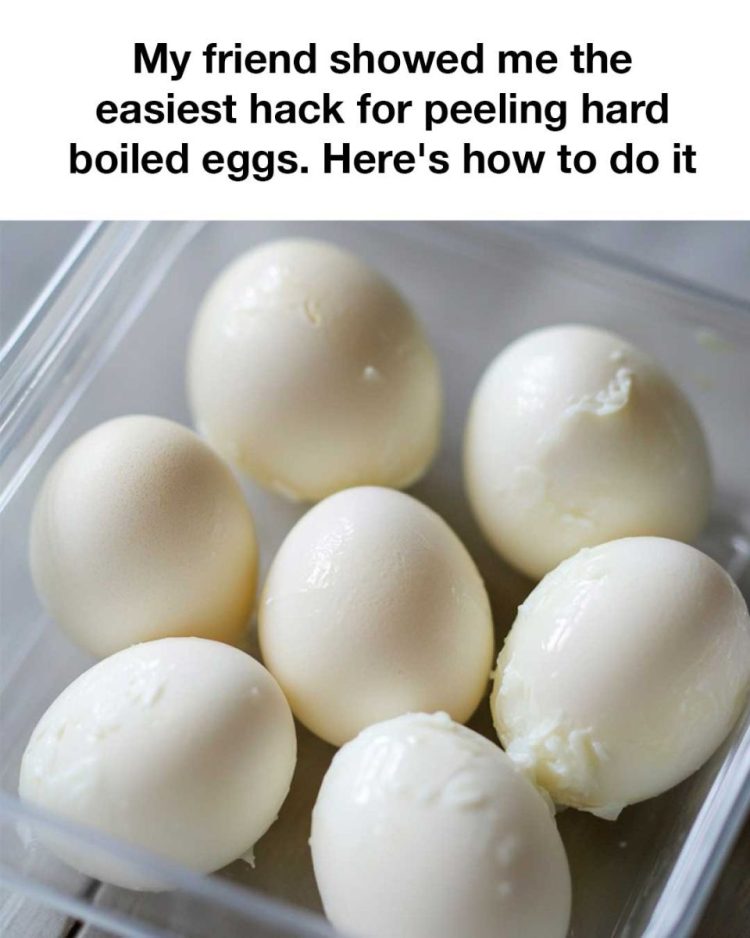Step 2: The Shake
Once your eggs are cooled, it’s time for the hack. Take one egg and place it inside a medium-sized, sealable container—Tupperware or a small jar works well. Add a small amount of cold water to the container (just enough to cover the bottom). Seal the container tightly.
Now, shake the container vigorously for about 10-15 seconds. As you shake, the egg will knock against the sides of the container and the water, causing the shell to crack and loosen from the egg white. The small amount of water helps prevent the egg from sticking to the sides while aiding in the separation of the shell from the egg.
Step 3: The Roll
After shaking, open the container and take out the egg. You’ll notice that the shell is already starting to peel away. To finish, gently roll the egg on a clean countertop or between your hands. The rolling motion will help separate any remaining bits of shell from the egg white.
As you roll, the shell should practically slide off in large pieces, leaving you with a perfectly smooth, intact egg. If there are still small pieces of shell sticking, a quick rinse under cold water will remove them effortlessly.
Why This Hack Works
The Shake and Roll method works so well because it combines several techniques that make eggs easier to peel. The shaking cracks the shell evenly, loosening the membrane that clings tightly to the egg white. The cold water creates a cushion and adds moisture, which further helps to loosen the shell. Finally, the rolling motion ensures that any remaining bits of shell are dislodged with minimal effort.
Additional Tips for Perfectly Peeled Eggs
While this hack is highly effective, here are a few extra tips to ensure your eggs peel perfectly every time:
- Use Older Eggs: As mentioned, older eggs are easier to peel due to the higher pH level in the egg white. If you know you’ll be boiling eggs, try to use eggs that are at least a week old.
- Add Baking Soda: Some people find that adding a teaspoon of baking soda to the boiling water helps increase the pH of the egg white, making it easier to peel.
- Peel Under Running Water: If small bits of shell remain, peeling the egg under running water can help wash them away.
- Peel Right After Cooling: While it’s important to cool the eggs after boiling, don’t wait too long to peel them. The longer the eggs sit, the more the membrane can reattach to the egg white, making peeling more difficult.
Peeling hard-boiled eggs doesn’t have to be a struggle. With the Shake and Roll method, you can say goodbye to stubborn shells and enjoy perfectly peeled eggs every time. This simple hack has made my kitchen routine much easier, and I’m sure it will do the same for you. Give it a try the next time you’re boiling eggs, and you’ll be amazed at how effortless peeling can be.
